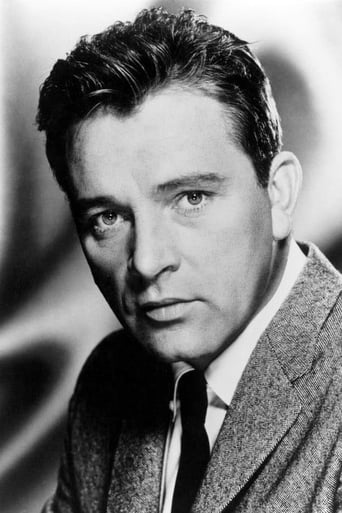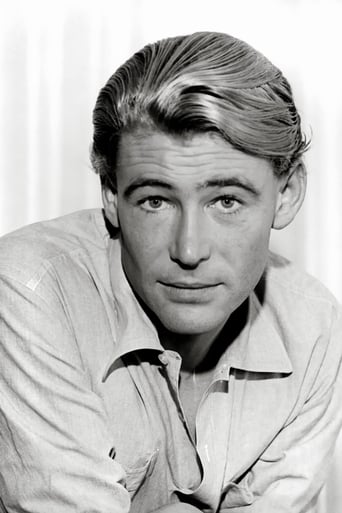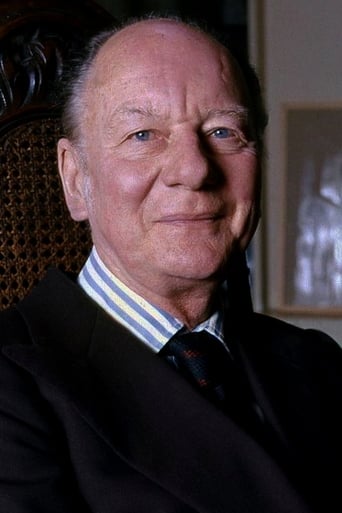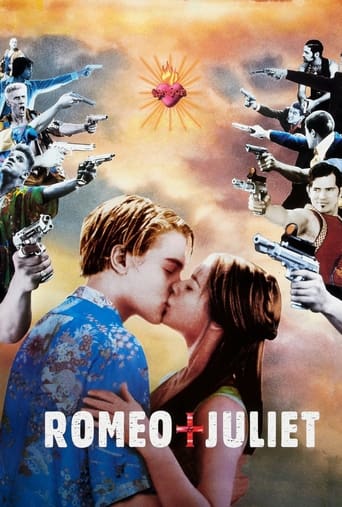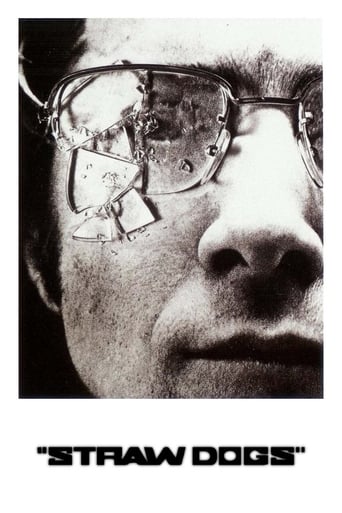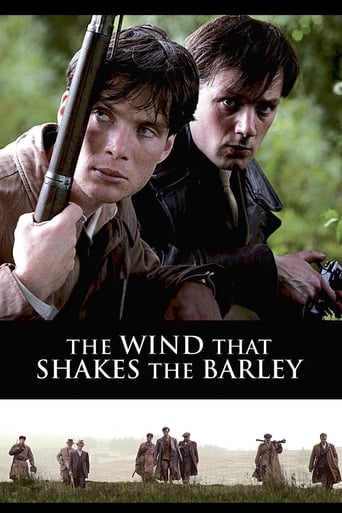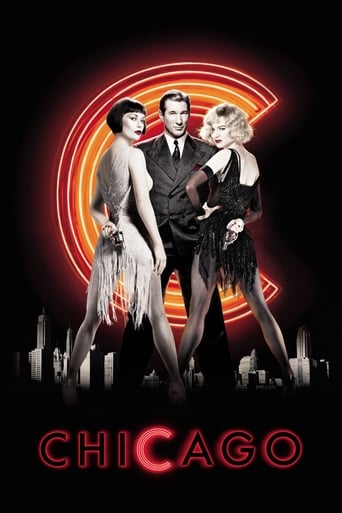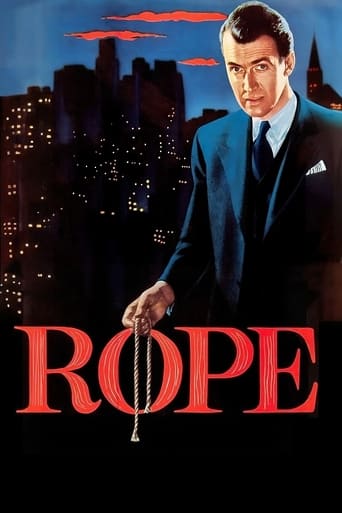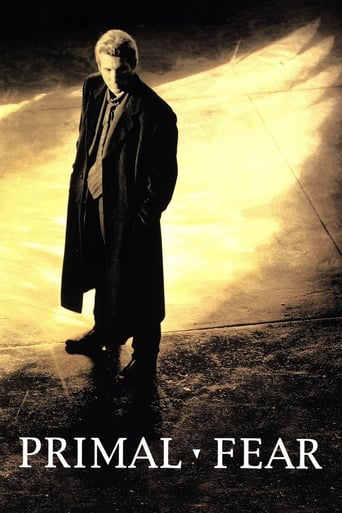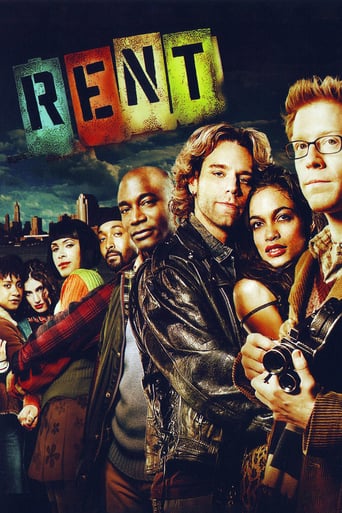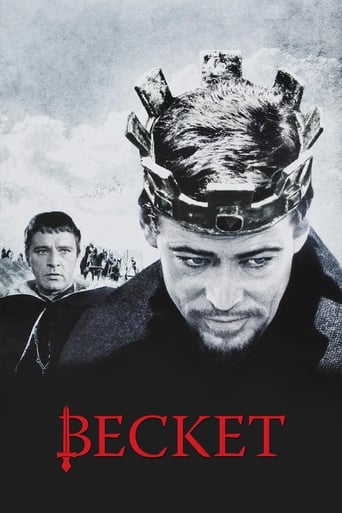

Becket (1964)
King Henry II of England has trouble with the Church. When the Archbishop of Canterbury dies, he has a brilliant idea. Rather than appoint another pious cleric loyal to Rome and the Church, he will appoint his old drinking and wenching buddy, Thomas Becket, technically a deacon of the church, to the post. Unfortunately, Becket takes the job seriously and provides abler opposition to Henry. Preserved by the Academy Film Archive in 2003.
Watch Trailer
Cast


Similar titles
Reviews
Let's start this review by addressing the fact that my opinions will only be based on the script of this film and not on its historical accuracy. I have come across some other reviews saying that the screenplay writers and the director has taken a lot of artistic liberty and the occurrences in the film are not historically accurate. But I will only judge the film in a standalone manner without going into actual historical facts.Becket is a grand, period-costume drama based on the friendship between King Henry II of England and his close Saxon friend Thomas Becket. They both belong to different races, Henry II being a Norman and Becket being a Saxon. This friendship gets sneered at by other members of both the races. Henry decides to appoint Becket as the Archbishop of Canterbury to do away with all the altercations he had with the previous Archbishops by expecting Becket to always be by his side. But things don't work out that way. The film has absolutely brilliant cinematography and art-design. The halls, the mansions, the extravagant buildings look absolutely fascinating. The larger than life surroundings make the characters look so small giving the impression that these are normal people caught in the middle of larger than life circumstances that force them to act in specific manners. The film won't be the same without two absolutely brilliant performances from Peter O'Toole and Richard Burton. O'Toole and Burton beautifully complement each other. O'Toole is the loud, vocally aggressive and abrasive Henry who only found solace in the company of Becket, while Burton is restrained, sharp and mild mannered as Becket. While in the film, it is clearly apparent that Henry loved Becket as a friend, it is a matter of conjecture whether Becket considered Henry II to be his friend or not. But personally I think he did. I think Becket as a young boy was much like Brother John, a naive hot headed individual who sought justice. But gradually he learned the ways of the world and did things which were essential for his survival and the genuine friendship he shared with Henry gradually strayed him away from his principles. But his meeting with Brother John and his duty to defend God's Honor after being made the Archbishop made him recapitulate and remember the ideals that he once stood for and that made him go against Henry. Henry's subsequent anger I thought was mainly because of his jealousy towards God. He opined that Becket, his one true friend had chosen God over him and this made him go mad and it was fascinating watching O'Toole's performance while Henry gets eaten away by this jealousy, yet not forgetting his affection for his dear old friend all through.The script is rich both thematically and visually. It deals with racism, misogyny, British medieval history, God and religion and it also has very apparent homo-erotic undertones. But I still don't think that the script is without a few blemishes. Sometimes it lacks a bit of subtlety with people blatantly saying what they are thinking and one major transition that happens in the film felt a bit rushed to me. I thought that transition could have been allowed to happen without it having to be so sudden and it could have been handled a bit better with a bit more care. But having said that, considering the epic nature of the script, I think the director Peter Glenville did well to still make a film that is personal and a film that is about the characters and not the costumes.
It's a sad story of Henry II (O'Toole) and Thomas Becket (Burton) who begin as friends and end as enemies. No one likes to see a friendship die, let alone the Archbishop of Canterbury.The performances -- it's hard to imagine how they could be topped. O'Toole is a king, ruthless in his pursuit of power and sex. And sometimes he lapses into childishness and seeks reassurance in Becket's bed, with no homosexuality implied. Protocol is observed though. The king calls his friend "Thomas," while his friend calls the king "My prince." No doubt about who's superior to whom around here., Burton begins as his reticent knight and valet, more sensible, as if he actually had frontal lobes, and more austere. It's made clear that he is a Saxon, while O'Toole's king is a French Norman, and that Burton takes care of the king properly. But there is a void in Burton because he seems to lack passionate conviction. He doesn't seem to believe in anything. He takes care of whatever business is at hand. And when he's promoted to Chancellor of the Exchequer or Minister of Finance or Order of the Steam Bath or whatever it is, he turns his attention to managing the king's everyday financial affairs as well as giving him advice.The king is a Norman and the chancellor is a conquered Saxon, and thus natural enemies. This is only one hundred years after the Battle of Hastings when William the Conqueror invaded England and squashed the Saxons mercilessly. The French were the nobility and the Saxons were the churls in the barnyard, which is why a pig is a swine in the stye but becomes pork when it reaches the table.So O'Toole has his doubts about Becket, but he nevertheless trusts him enough to appoint him Archbishop of Canterbury so that he will put an end to the braying of the church, a rival for the king's power. It's a big mistake for O'Toole. Suddenly the void within Becket is filled; he has an epiphany and becomes a true religious and an obstacle to the king. That was a mistake for Burton, one he doesn't survive. The first problem arises when Burton, now Archbishop, is informed that a priest has been accused of "debaucherie" and is about to be dragged before a civil court instead of being tried by the church. Later the priest is killed while trying to escape. These sorts of jurisdictional conflict will crop up from time to time. That's why Guantanamo Bay and its prison are so nettlesome. In the case of the priest, both Becket and the king become intractable, neither willing to compromise or budge an inch. That crops up too.Neat, the way "command pressure" is expressed. O'Toole wants Burton dead but he never orders it. Instead, in a painful moan, he asks, "Will no one rid me of this meddlesome priest?" His cronies interpret this literally, not as simple rhetoric. The job gets done and the king retains his "plausible deniability." The musical score is pedestrian. When the nobles go a-hunting, we hear an exciting hunting melody. When a would-be assassin is sneaking up on Burton, we hear tremolo violins, just as we would in an Abbott and Costello movie. The cathedral has quadraphonic "Dies Irae." When O'Toole enters a conquered French city in a triumphal march, there is a triumphal march.And, near the beginning, when the two friends are out wenching, we only see O'Toole wenching. Burton play the lookout. We never see Burton drunk or humping. Probably because it would be inelegant to suggest that the future head of the church in England would ever experience such goaty desires. Yet, Becket, playing the innocent Archbishop, may not be so innocent. The Pope sends him on a retreat to a monastery in France. Becket now is dressed like an ordinary monk and works as a field hand. He claims to be happy, but, alone, he wonders if God hasn't made his life "too easy." Maybe, after all, God wants him to go back to England and challenge the king openly. You know, exercise a little AUTHORITY again, become a celebrity once more, instead of hustling up a sweat feeding the cattle. It's a richly textured play. No one is unambiguous. At their last meeting, Henry begs Becket to be his friend again.Frankly, I liked the earlier Becket, when he was a roisterer and an empty cynic. As Archbishop he becomes stiff and unyielding, his speeches turn pompous, he rolls his eyes heavenward too often. And Burton has a quirk I'd never noticed. He pauses before delivering the last word or two of a dramatic sentence. "God will hold us in his hand . . . forever." John Wayne did something similar. "I'd better go . . . back and see to the . . . passengers." And, "Did you . . . picket this area?" In Burton's case the pauses were the result of deliberation; in Wayne's, he may just have been out of breath.
The royals have long been popular on the silver screen, and Becket is a pillar of the genre, despite numerous inaccuracies and a general spicing- up-of-facts going' on.Book-ended by scenes at the tomb of Thomas Becket, the rest of the film is a flashback to his life, from a wild youth, to a career as a statesman, and then his appointment as Archbishop of Canterbury.Central to the drama is the bond between Becket and Henry II, to the point that the film is almost less a biopic than the story of a relationship. Peter O'Toole is at his best here, throwing himself into the dissolute, petulant king with gusto (a role he would reprise in 1968's The Lion in Winter). He nearly steals the show from Richard Burton's gentle, erudite Becket, but if O'Toole provides driving force of the narrative, it is Burton that channels it.Both characters begin the story as thorough profligates (brief, graphic female nudity earns it a PG-13 rating), living the high life, drunk on power and luxury. Henry is a man without restraint, but one senses that the cunning, enigmatic Becket is not entirely committing himself to the revelry. Always, there is something held back, something undisclosed, something he refuses to give. It will prove his destruction, for Henry can't stand the idea that his beloved Becket may hold loyalties above and besides the king. Ironically, it is Henry himself that destroys this loyalty when he appoints Becket archbishop, for it brings the two into inevitable conflict, and forces Becket to finally commit to something, to finally "find his honor..."Secondary to this dual clash of personality and faith is the symbolic rivalry of church and state. Unlike A Man for All Seasons, a film of ideas, and people who debated and defined themselves by those ideas, this is first and foremost an emotional drama. Because of this, it's not as good a film as Seasons (which invites comparison given the uncanny similarity of events). It suffers from over-complexity, over-length, and a main character who hasn't the power to command the narrative (Burton is good, but he's no Paul Scofield, as he was quick to admit.) The music is dated, a brassy, distracting clamor that leaps in to emphasize dramatic moments but instead converts them to comedic melodrama. Occasionally we're aware we're in a play, particularly when Burton performs his prayers as soliloquies.But these are quibbles. Becket is a lavish affair, taking a far broader approach than Seasons. We get to see much more of this fascinating archaic world (the 12th rather than the 16th century), explore some truly spectacular locations, meet folk from all classes, witness the awe- inspiring ritual of the medieval church, and the ugliness of secular and religious politics. Our tour guides are two of the finest actors of their generation, who have such enormous rapport that every scene without them feels empty (even if that scene features a young, mischievous John Gielgud.)While flawed, Becket's charms are many, from the witty writing to the breath-taking cinematography. These and other things allow Becket to easily take its place among the high circles of costume drama, but it is the immense chemistry between the two leads, Burton and O'Toole, that catapults it to a place of royalty.Originally posted at http://www.longview95.blogspot.com/2014/09/becket- movie-review.html
I have just watched this movie after an absence of many years and have to conclude that in general it still holds up well as a well crafted historical drama. OK, some of the historical facts are inaccurate but it should be remembered it is based on a play by French dramatist Jean Anouilh who by his own account, admitted that it contained a few inaccuracies but nevertheless remains true to history in the most important aspects, i.e.the clash between Church and State in the form of Archbishop Thomas a Becket and King Henry ll of England and the subsequent murder of the former. I'm inclined to think Peter O'Toole's acting is at times on over the top but that's preferable to most of the totally unconvincing cardboard cut-outs we get in Hollywood movies today that attempt mediaeval historical subjects, usually with disastrous results. Richard Burton can command attention from his voice alone and the two protagonists many scenes together always manage to hold your attention in a film that can at times drag on a bit. The superb Donald Wolfit adds gravitas to any film/play he partakes of so that's another plus. Cinematography is excellent, again far superior to most modern productions that seem devoid of realistic colour and the stereo sound of a well composed soundtrack is great. I guess if the great David Lean had been the director it would certainly have been better but as it stands it's highly watchable.


